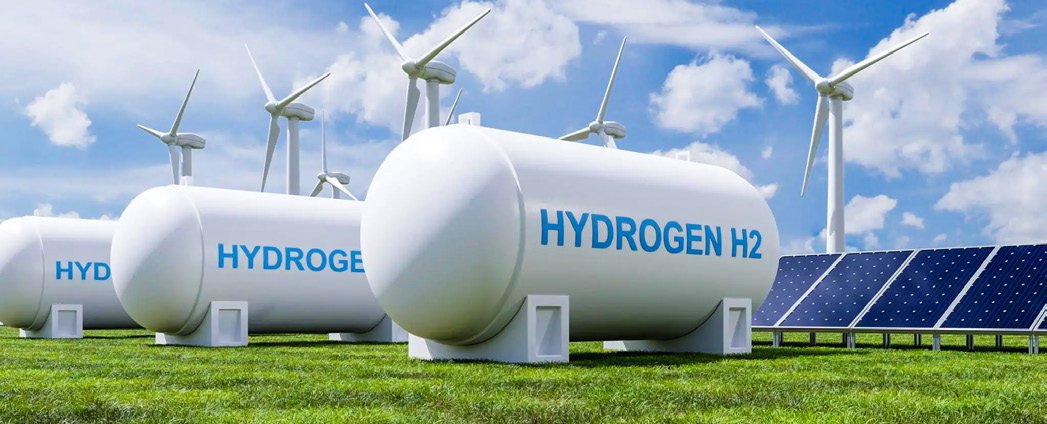
In the pursuit of sustainable energy solutions, Africa finds itself at a pivotal juncture, with green hydrogen (GH) emerging as a powerful catalyst for transformative change. Despite its nascent stage of development and the complexities surrounding its production, GH holds immense potential to reshape the continent’s energy landscape.
Green hydrogen is a product of electricity harnessed from renewable sources such as solar, wind, and hydro, devoid of any harmful CO2 emissions. It emerges through the process of electrolysis, which involves splitting water molecules into hydrogen and oxygen within electrochemical cells powered exclusively by electricity generated from renewable sources. However, the significance of green hydrogen transcends this straightforward definition.
It represents a game-changing asset for multiple African countries, offering the prospect of virtually emissions-free energy with a high energy density.
This makes it suitable for powering a diverse range of economic activities, from industrial processes to transportation. Furthermore, its ability to be efficiently stored and transported in liquid or gaseous forms positions it as a complementary resource to other renewable energy sources. In essence, green hydrogen has the potential to mitigate the challenges of the energy transition, rendering renewable energy more sustainable and less disruptive.
However, it’s crucial to acknowledge that GH is still an evolving technology. It requires substantial investments and experimentation to refine its economic and operational models. Several countries are stepping forward as pioneers in GH development, with Morocco leading the pack in Africa. RES4Africa explored the country’s energetic evolution in a report titled «Green Hydrogen in Morocco: Policy Recommendations to Implement the National Roadmap.» Morocco has become the first African country to chart an official National Roadmap for Green Hydrogen, projecting a significant increase in GH demand, expected to reach between 13.9 TWh and 30.1 TWh by 2030. Morocco’s ambition is to proactively generate, consume, and export green hydrogen, potentially transforming the nation into Africa’s most advanced energy hub.

Despite these aspirations, a significant gap exists between words and actions, one that Morocco has the potential to bridge. The first critical step involves completing the national hydrogen strategy by setting quantifiable and achievable targets for every aspect of the GH value chain, from production to electrolyzer capacity and transportation infrastructure. Secondly, Morocco should prioritize reducing greenhouse gas emissions while simultaneously increasing the generation of other renewable energy sources, fostering collaboration with international private investors to bolster local consumption and exports. This synergy will be instrumental in propelling Morocco towards its GH goals. Lastly, Rabat should allocate resources to establish a comprehensive regulatory framework. Effective GH policies encompass designing bankable contracts for off-takers, implementing de-risking instruments, and providing clear financial support mechanisms such as grants, concessional loans, and tax credits. Additionally, certifications and labels are essential to ensure that GH meets the regulations of receiving countries and maintains its «green» status throughout the extraction and refinement process. This multifaceted approach requires support from the Moroccan government, fostering an enabling environment that promotes governance, research and development platforms, think tanks, national companies, and ministries. Collaboration among these entities is key to advancing research and pilot programs continually.
To conclude, green hydrogen emerges as a potent solution poised to accelerate Africa’s energy transition while mitigating its inherent challenges. Pioneering countries such as Morocco are at the forefront of this transformative journey, and their endeavors, if adequately supported by international private stakeholders, could pave the way for a cleaner and more prosperous energy future not only in Africa but globally. Africa’s transition to green hydrogen signifies a pivotal chapter in the global fight against climate change and the pursuit of a sustainable future.

